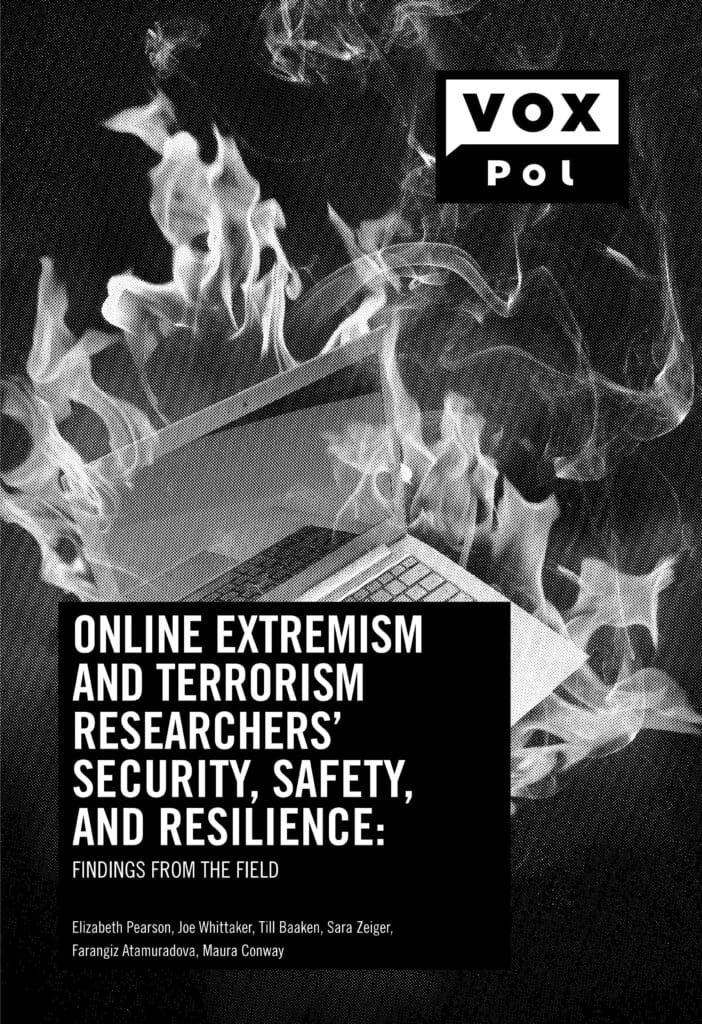Ethics
Innocent Users Have the Most to Lose in the Rush to Address Extremist Speech Online
August 7, 2024VOX-Pol Blog Post. ...
VOX-Pol Guest Lecture Series: Catch 22: Researcher Welfare and Institutional Ethics
August 2, 2024VOX-Pol Guest Lecture Series, Autumn 2023 Name: Dr Joe Whittaker Title: Catch 22: Researcher Welfare and Institutional Ethics within Online Terrorism and Extremism Research Outline: “Recent years have seen an increase in concern over the welfare of researchers who regularly engage with extremist and terrorist content online. This comprises external (such as death threats, doxing, ...
VOX-Pol Workshop: Early Career Researcher Safety, Wellbeing and Ethics
August 1, 2024The Next Gen Academic Survival Workshop Series: Early Career Researcher Safety, Wellbeing and Ethics ...
Lurking with the Radical Right: The Ethics of Online Covert Research
July 31, 2024VOX-Pol Blog post. ...
Assessing the Ethics and Politics of Policing the Internet for Extremist Material
May 20, 2024The Oxford Internet Institute’s Ian Brown and MIT’s Josh Cowls co-authored the VOX-Pol report entitled Check the Web: Assessing the Ethics and Politics of Policing the Internet for Extremist Material, which explores the complexities of policing the web for extremist material, and looks into its implications for security, privacy, and human rights. Below, Josh Cowls discusses the report with Bertie ...
Online Extremism and Terrorism Researchers’ Security, Safety, and Resilience: Findings from the Field
January 3, 2024VOX-Pol’s new report presents findings from the REASSURE (Researcher, Security, Safety, and Resilience) project’s in-depth interviews with 39 online extremism and terrorism researchers. Based at universities, research institutes, and think tanks in Europe and North America, the interviewees studied mainly, albeit not exclusively, far-right and violent jihadist online activity. The report catalogues for the first ...
Toward an Ethical Framework for Countering Extremist Propaganda Online
September 18, 2023In recent years, extremists have increasingly turned to online spaces to distribute propaganda and as a recruitment tool. While there is a clear need for governments and social media companies to respond to these efforts, such responses also bring with them a set of ethical challenges. This paper provides an ethical analysis of key policy ...
Considering the Ethics of Big Data Research: A Case of Twitter and ISIS/ISIL
September 18, 2023This is a formal commentary, responding to Matthew Curran Benigni, Kenneth Joseph, and Kathleen Carley’s contribution, “Online extremism and the communities that sustain it: Detecting the ISIS supporting community on Twitter”. This brief review reflects on the ethics of big data research methodologies, and how novel methods complicate long-standing principles of research ethics. Specifically, the ...
The Legal Response Of Western Democracies To Online Terrorism And Extremism
September 18, 2023Extremists and terrorists have found the online sphere, and specifically its social networks, to be an efficient tool for advancing their methods and political needs. The legal responses to the resulting threats from this online activity vary from country to country. The immense importance of the Internet in the everyday life of billions of people ...
Terrorism, Violent Extremism, and the Internet: Free Speech Considerations
September 18, 2023Recent acts of terrorism and hate crimes have prompted a renewed focus on the possible links between internet content and offline violence. While some have focused on the role that social media companies play in moderating user-generated content, others have called for Congress to pass laws regulating online content promoting terrorism or violence. Proposals related ...

